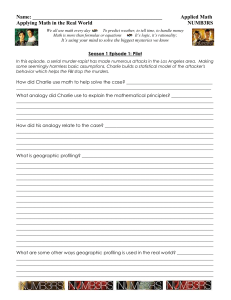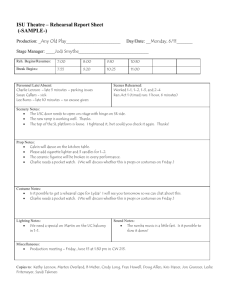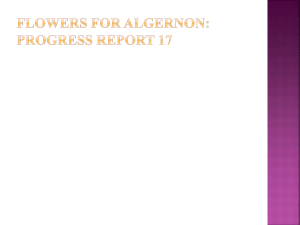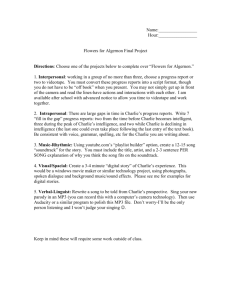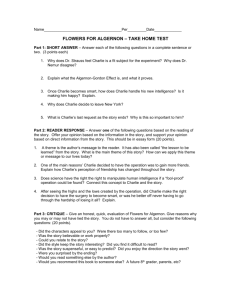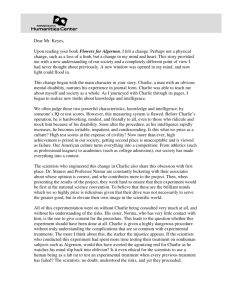“Affective” Advising: Julie O’Brien & Niall Hartnett, Western Illinois University 2009 NACADA Annual Conference *Code 235
advertisement
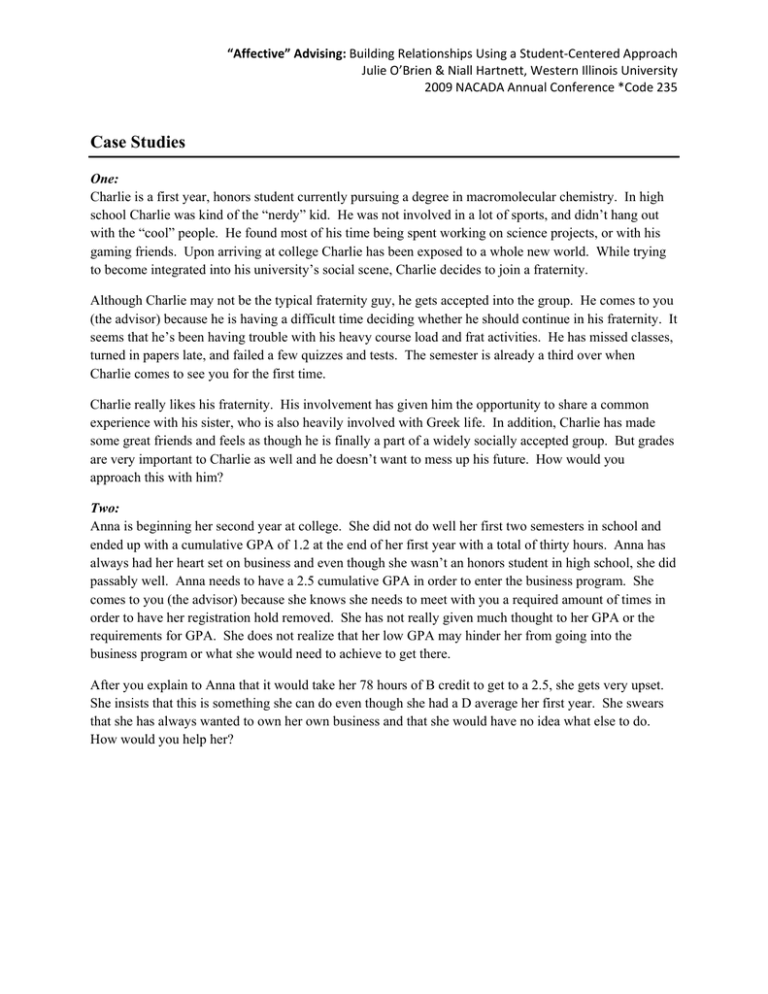
“Affective” Advising: Building Relationships Using a Student‐Centered Approach Julie O’Brien & Niall Hartnett, Western Illinois University 2009 NACADA Annual Conference *Code 235 Case Studies One: Charlie is a first year, honors student currently pursuing a degree in macromolecular chemistry. In high school Charlie was kind of the “nerdy” kid. He was not involved in a lot of sports, and didn’t hang out with the “cool” people. He found most of his time being spent working on science projects, or with his gaming friends. Upon arriving at college Charlie has been exposed to a whole new world. While trying to become integrated into his university’s social scene, Charlie decides to join a fraternity. Although Charlie may not be the typical fraternity guy, he gets accepted into the group. He comes to you (the advisor) because he is having a difficult time deciding whether he should continue in his fraternity. It seems that he’s been having trouble with his heavy course load and frat activities. He has missed classes, turned in papers late, and failed a few quizzes and tests. The semester is already a third over when Charlie comes to see you for the first time. Charlie really likes his fraternity. His involvement has given him the opportunity to share a common experience with his sister, who is also heavily involved with Greek life. In addition, Charlie has made some great friends and feels as though he is finally a part of a widely socially accepted group. But grades are very important to Charlie as well and he doesn’t want to mess up his future. How would you approach this with him? Two: Anna is beginning her second year at college. She did not do well her first two semesters in school and ended up with a cumulative GPA of 1.2 at the end of her first year with a total of thirty hours. Anna has always had her heart set on business and even though she wasn’t an honors student in high school, she did passably well. Anna needs to have a 2.5 cumulative GPA in order to enter the business program. She comes to you (the advisor) because she knows she needs to meet with you a required amount of times in order to have her registration hold removed. She has not really given much thought to her GPA or the requirements for GPA. She does not realize that her low GPA may hinder her from going into the business program or what she would need to achieve to get there. After you explain to Anna that it would take her 78 hours of B credit to get to a 2.5, she gets very upset. She insists that this is something she can do even though she had a D average her first year. She swears that she has always wanted to own her own business and that she would have no idea what else to do. How would you help her?

